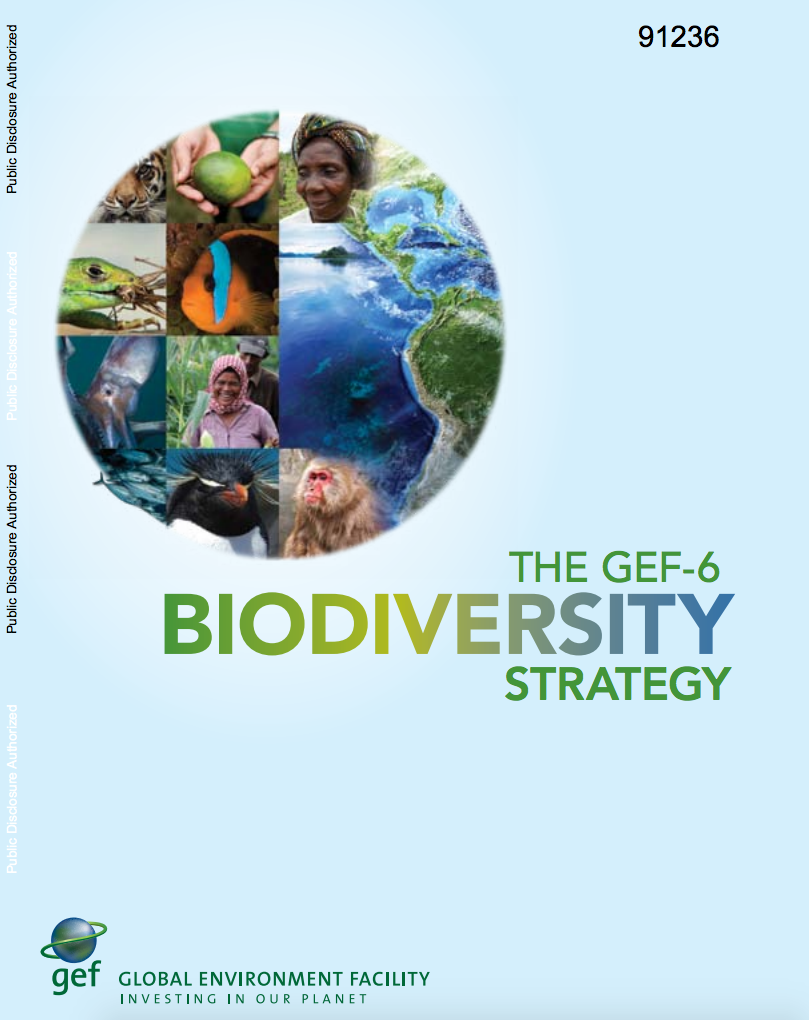The World Bank is a vital source of financial and technical assistance to developing countries around the world. We are not a bank in the ordinary sense but a unique partnership to reduce poverty and support development. The World Bank Group has two ambitious goals: End extreme poverty within a generation and boost shared prosperity.
- To end extreme poverty, the Bank's goal is to decrease the percentage of people living on less than $1.25 a day to no more than 3% by 2030.
- To promote shared prosperity, the goal is to promote income growth of the bottom 40% of the population in each country.
The World Bank Group comprises five institutions managed by their member countries.
The World Bank Group and Land: Working to protect the rights of existing land users and to help secure benefits for smallholder farmers
The World Bank (IBRD and IDA) interacts primarily with governments to increase agricultural productivity, strengthen land tenure policies and improve land governance. More than 90% of the World Bank’s agriculture portfolio focuses on the productivity and access to markets by small holder farmers. Ten percent of our projects focus on the governance of land tenure.
Similarly, investments by the International Finance Corporation (IFC), the World Bank Group’s private sector arm, including those in larger scale enterprises, overwhelmingly support smallholder farmers through improved access to finance, inputs and markets, and as direct suppliers. IFC invests in environmentally and socially sustainable private enterprises in all parts of the value chain (inputs such as irrigation and fertilizers, primary production, processing, transport and storage, traders, and risk management facilities including weather/crop insurance, warehouse financing, etc
For more information, visit the World Bank Group and land and food security (https://www.worldbank.org/en/topic/agriculture/brief/land-and-food-security1
Resources
Displaying 1211 - 1215 of 4907Results in the Latin America and Caribbean Region
A focus on development results is at the
heart of the Latin America and Caribbean Region s approach
to delivering programs and policy advice with partners in
middle-income and low income countries alike. Through
knowledge, convening activities, and financial services we
strive to help people across the region create better
opportunities and build a better future for themselves,
their families and their country. Documenting, measuring and
Collective Action and Women's Agency : A Background Paper
Following the findings and policy
messages of the World Development Report (WDR) on gender
equality and development 2012, the World Bankapos;s gender
and development group are seeking to deepen the evidence
base on promoting womenapos;s agency as a basis for enhanced
action on gender equality. A component of this work is a
review of evidence on the relationship between collective
action and womenapos;s agency: whether and how different
World Bank Research Digest, Vol. 7(1)
In this issue: benchmarking global
poverty reduction; rethinking the stateapos;s role in
finance; coordinating housing and transport policies in
urban South Africa; making public sector reforms work;
helping women get to work; export superstars; why did
inequality in Latin America decline in the 2000s?
Land certification in Madagascar: formalizing (f)or securing?
Two major innovations have inter alia emerged from the land reform in Madagascar: (i)
decentralised land management through the creation of local land offices, and (ii)
certification, which enables individuals to register private property provided the community
agrees on the legitimacy of the claimed rights.
Despite the political crisis and the withdrawal of international aid during this period (2009 -
2013), new local land offices have been created, and now cover a third of the country’s
The GEF-6 Biodiversity Strategy
The Convention on Biological Diversity
(CBD) defines biodiversity as the variability among living
organisms from all sources including, inter alia,
terrestrial, marine and other aquatic ecosystems and the
ecological complexes of which they are part; this includes
diversity within species, between species, and of
ecosystems. The Millennium Ecosystem Assessment and TEEB
(The Economics of Ecosystems and Biodiversity) demonstrated







